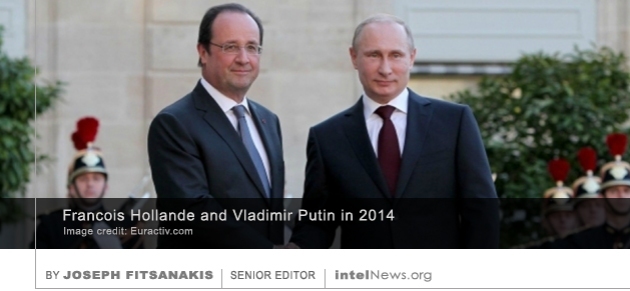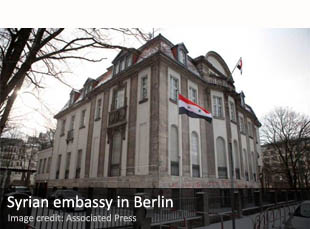Qatargate corruption scandal probe widens to include Moroccan spy services
January 2, 2023 1 Comment
 THE CRIMINAL CORRUPTION SCANDAL known as Qatargate, which has rocked the European Parliament in recent weeks, involves covert influence operations by Moroccan spies, in addition to Qatari intelligence operatives, according to news reports.
THE CRIMINAL CORRUPTION SCANDAL known as Qatargate, which has rocked the European Parliament in recent weeks, involves covert influence operations by Moroccan spies, in addition to Qatari intelligence operatives, according to news reports.
On December 9 and 10, Belgian and Italian police arrested a dozen politicians, European Parliament aides, civil servants, lobbyists, and members of their families. Over €2 million in cash and other assets has since been seized by authorities, as a Europe-wide investigation continues. Those arrested included Eva Kaili, vice president of the European Parliament, which is among the core legislative bodies of the European Union. Kaili and her co-conspirators are accused of selling their ability to influence European Union policies on Qatar, in exchange for cash and other perks. Although the government of Qatar vehemently denies having a role in the scandal, it is widely believed that operatives linked to Qatari authorities facilitated the bribes.
During the past week, however, several reports in European news outlets have been alleging that, in addition to Qatar, the Kingdom of Morocco also appears to have been involved in parallel efforts to buy influence within the European Parliament. Early clues of this development surfaced during the week of December 12 in the Belgian broadsheet Le Soir and the Italian daily La Republica. The reports focused on an intelligence operative codenamed M118, who allegedly worked for the General Directorate for Studies and Documentation (DGED), the foreign spy service of Morocco.
Last week, a new report in the German newsmagazine Der Spiegel supported the theory that M118 is Mohamed Belahrech. Belahrech is allegedly an identified DGED operative, who is believed to have recruited two members of the European Parliament from Italy, Antonio Panzeri and Andrea Cozzolino, as well as Francesco Giorgi, Kaili’s Italian partner. Giorgi, a key figure in Qatargate, remains in custody. Der Spiegel also claims that Abderrahim Atmun, Morocco’s ambassador to Poland, led the Moroccan government’s efforts to recruit the three Italians. According to the report, the three were in direct communication with Mohamed Yassine Mansouri, director general of the DGED.
► Author: Joseph Fitsanakis | Date: 02 January 2023 | Permalink

 BELGIUM’S LARGEST MOSQUE has been infiltrated by Moroccan intelligence, according to the Belgian minister of justice, who allegedly consulted the country’s spy services in making that determination. The announcement has further-strained relations between the Belgian government and the country’s Muslims, which account for about 5% of the Belgian population.
BELGIUM’S LARGEST MOSQUE has been infiltrated by Moroccan intelligence, according to the Belgian minister of justice, who allegedly consulted the country’s spy services in making that determination. The announcement has further-strained relations between the Belgian government and the country’s Muslims, which account for about 5% of the Belgian population. A French police officer has been charged with illegally sharing secret government documents in an espionage case involving France’s border police and diplomats from Morocco and Algeria. According to information published by the French daily Libération, the police officer supplied Moroccan intelligence with classified information about France’s border-control policies and procedures. He also gave the Moroccans information about the movements in France of Moroccan nationals and senior Algerian government officials.
A French police officer has been charged with illegally sharing secret government documents in an espionage case involving France’s border police and diplomats from Morocco and Algeria. According to information published by the French daily Libération, the police officer supplied Moroccan intelligence with classified information about France’s border-control policies and procedures. He also gave the Moroccans information about the movements in France of Moroccan nationals and senior Algerian government officials. Israel’s intelligence services had access to recordings of secret talks between Arab heads of state in 1965, which helped the Jewish state win the Six-Day War, according to the former director of the country’s Military Intelligence Directorate. The brief but important conflict, which is also known as the Third Arab-Israeli War, broke out on June 5, 1967, when the Egyptian, Syrian and Jordanian armies attacked Israel. But within hours the Jewish state had managed to decimate the assailants’ air forces, and went on to deliver fatal blows to its adversaries. By the end of the war, Israel’s territory had increased threefold and Israeli troops were in control of the West Bank, the Gaza Strip and the Sinai Peninsula, among other areas.
Israel’s intelligence services had access to recordings of secret talks between Arab heads of state in 1965, which helped the Jewish state win the Six-Day War, according to the former director of the country’s Military Intelligence Directorate. The brief but important conflict, which is also known as the Third Arab-Israeli War, broke out on June 5, 1967, when the Egyptian, Syrian and Jordanian armies attacked Israel. But within hours the Jewish state had managed to decimate the assailants’ air forces, and went on to deliver fatal blows to its adversaries. By the end of the war, Israel’s territory had increased threefold and Israeli troops were in control of the West Bank, the Gaza Strip and the Sinai Peninsula, among other areas. The United States and Russia, which have traditionally been cautious about sharing Middle East-related intelligence with France, have both announced that they will begin giving classified information to Paris. On Wednesday, France’s Defense Minister Jean-Yves Le Drian
The United States and Russia, which have traditionally been cautious about sharing Middle East-related intelligence with France, have both announced that they will begin giving classified information to Paris. On Wednesday, France’s Defense Minister Jean-Yves Le Drian 
 By IAN ALLEN | intelNews.org |
By IAN ALLEN | intelNews.org |










